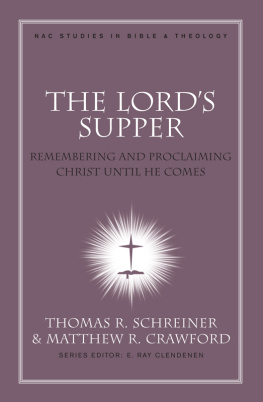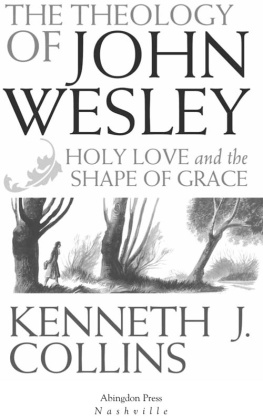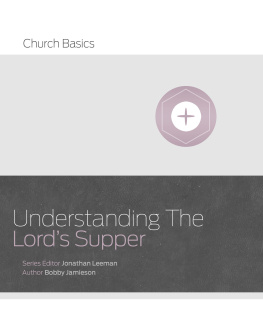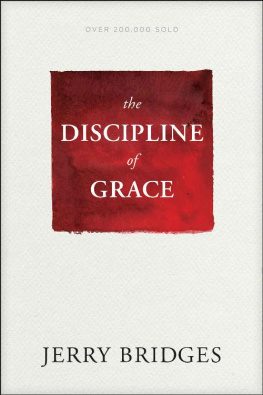Thompson - The means of grace: traditional practice in todays world
Here you can read online Thompson - The means of grace: traditional practice in todays world full text of the book (entire story) in english for free. Download pdf and epub, get meaning, cover and reviews about this ebook. City: Franklin;Tennessee, year: 2015, publisher: Vearsa;Seedbed, genre: Religion. Description of the work, (preface) as well as reviews are available. Best literature library LitArk.com created for fans of good reading and offers a wide selection of genres:
Romance novel
Science fiction
Adventure
Detective
Science
History
Home and family
Prose
Art
Politics
Computer
Non-fiction
Religion
Business
Children
Humor
Choose a favorite category and find really read worthwhile books. Enjoy immersion in the world of imagination, feel the emotions of the characters or learn something new for yourself, make an fascinating discovery.

The means of grace: traditional practice in todays world: summary, description and annotation
We offer to read an annotation, description, summary or preface (depends on what the author of the book "The means of grace: traditional practice in todays world" wrote himself). If you haven't found the necessary information about the book — write in the comments, we will try to find it.
The means of grace: traditional practice in todays world — read online for free the complete book (whole text) full work
Below is the text of the book, divided by pages. System saving the place of the last page read, allows you to conveniently read the book "The means of grace: traditional practice in todays world" online for free, without having to search again every time where you left off. Put a bookmark, and you can go to the page where you finished reading at any time.
Font size:
Interval:
Bookmark:
The Means of
GRACE
GRACE
Traditioned Practice in Todays World
ANDREW C. THOMPSON

Copyright 2015 by Andrew C. Thompson
All rights reserved. No part of this publication may be reproduced, stored in a retrieval system, or transmitted, in any form or by any meanselectronic, mechanical, photocopying, recording, or otherwisewithout prior written permission, except for brief quotations in critical reviews or articles.
Unless otherwise noted, Scripture quotations are taken from the Holy Bible: English Standard Version, copyright 2001, Wheaton: Good News Publishers. Used by permission. All rights reserved.
Scripture quotations marked RSV are taken from the Revised Standard Version of the Bible, copyright 1952 [2nd edition, 1971] by the Division of Christian Education of the National Council of the Churches of Christ in the United States of America. Used by permission. All rights reserved.
Scripture quotations marked KJV are taken from the Holy Bible, King James Version, Cambridge, 1796.
Scripture quotations marked NIV are taken from THE HOLY BIBLE, NEW INTERNATIONAL VERSION, NIV Copyright 1973, 1978, 1984, 2011 by Biblica, Inc. Used by permission. All rights reserved worldwide.
Scripture quotations marked NRSV are taken from the Holy Bible: New Revised Standard Version/Division of Christian Education of the National Council of Churches of Christ in the United States of America.Nashville: Thomas Nelson Publishers, c 1989. Used by permission. All rights reserved.
Scripture quotations marked NKJV are taken from the New King James Version. Copyright 1982 by Thomas Nelson, Inc. Used by permission. All rights reserved.
Printed in the United States of America
Paperback ISBN: 978-1-62824-227-0
Mobi ISBN: 978-1-62824-228-7
ePub ISBN: 978-1-62824-229-4
uPDF ISBN: 978-1-62824-230-0
Library of Congress Control Number: 2015948988
Cover design by Nikabrik Design
Page design by PerfecType
SEEDBED PUBLISHING
Franklin, Tennessee
Seedbed.com
SOW FOR A GREAT AWAKENING
For Mom and Dad
IM GRATEFUL FOR THE CONTRIBUTIONS OF OTHER pastors and teachers before me who have written in the area this book covers. They have taught me a great deal. These Wesleyan authors have contributed to a revived interest in spiritual practices and disciplines in our tradition helping the church to understand how a distinctly patterned approach to discipleship lies at the heart of the Wesleyan understanding about how transformation occurs over time. Steve Harper and Hal Knight have written important popular-level works on Wesleyan spirituality and the means of grace. Their contributions have been important in retrieving the language of the means of grace for a broad Wesleyan audience. Ive been particularly influenced by Knights academic-level work on the means of grace as well. Other contributions by Dean Blevins, Ole Borgen, Kenneth Collins, Richard Heitzenrater, and Randy Maddox have also been deeply influential on both my thinking and practice of the means of grace.
My reason for writing this book is threefold. First, I want to show the deep connection between biblical spirituality and practical discipleship. John Wesley believed that the means of grace are important primarily because together they are the pattern of faithful discipleship we find given to us in the Bible. Wesley taught that the means of grace are given to us by Jesus Christ in the four gospels of Matthew, Mark, Luke, and John. They are also the way the early church patterned its life in the Acts of the Apostles. So in a way, the entire Wesleyan teaching around the means of grace is a way to try and explain the biblical model of discipleship for the Christian life. I find that part of Wesleys practical theology to be utterly compelling and I believe it should be shared far and wide.
Second, I wanted to write this book to share with a broad audience the actual structure and approach that Wesley used in applying the means of grace to practical life. We live in such a consumerist culture that we apply that mind-set to everything we doincluding our practice of discipleship. Ive met Christians who talk about how they love to study the Bible or find their primary connection to God in prayer. Others will say that they practice their discipleship through their participation in service projects or mission trips. Still others think of their practice of faith as focused primarily in Sunday morning worship. The reality about the Wesleyan approach to discipleship is that there is no buffet-style picking and choosing. Instead, there is a strong conviction that the means of grace should serve as the pattern of the Christian life (to use Knights phrase). Only when we live into a form of discipleship that embraces all the means of grace do we discover ourselves growing into the kind of spiritual maturity that is spoken about in Ephesians 4:15: we are to grow up in every way into him who is the head, into Christ.
Finally, I thought it was important to write this book as a way to offer Christians an accessible guide to practicing the means of grace in their own lives and in their own communities. We are creatures of habit, and we live our lives by routines. Sometimes we self-consciously choose those routines, and sometimes we find them imposed on us by outside circumstances. It is easy to fall into bad routines unless we make a sustained effort to do otherwise. The means of grace offer us such a choice, whereby we can embrace a holy routine that aims at forming us into real disciples of Jesus Christ. In the Wesleyan tradition, we consider the life of discipleship to point us toward nothing less than salvation in this present lifeand to offer us a foretaste of the salvation that is to come.
A project of this sort would not be possible without a wonderful group of people who have offered their support and encouragement along the way. J. D. Walt and Andrew Miller at Seedbed Publishing were encouraging of this book from the beginning; Andrew, in particular, has been a conversation partner throughout the writing process and has been gracious with both feedback and deadline extensions. The whole Seedbed team is a joy to work with.
Some of the content in this book served first as teaching topics in church and seminary settings. Im grateful to the congregations of Mt. Carmel United Methodist Church (Henderson, NC), Dukes Chapel United Methodist Church (Durham, NC), and Marion United Methodist Church (Marion, AR), for their willingness to engage material on the means of grace through sermons and other teaching sessions. I am especially indebted to the students in my Means of Grace in the Wesleyan Tradition course at Memphis Theological Seminary, in both the fall of 2012 and the spring of 2015, for the lively conversations we had and the insights they provided.
My greatest thanks go to my wife, Emily, and our three children: Alice, Stuart, and Anna Charlotte. They are patient with me beyond anything I have a right to expect, and they indulge my tendency to lose myself down one theological rabbit hole after another. Alice, at age four, shows promise of becoming the theologian I could never hope to be. To God alone be the glory, for them and for the opportunity to write this book while living with and loving them.
Finally, I want to offer my love and gratitude to my parents, Charlotte and Robert Thompson. In ways beyond counting they gave me the kind of upbringing that helped me to know the power of the means of grace before I ever learned the term itself. Both the life of our family and the life of the church to which our family belonged provided me with my earliest spiritual formation and encounter with the grace we find in Jesus Christ. Not long after my first daughter was born, my mom said to me in an almost offhand way, Andrew, now youll know how Ive felt about you for all these years. Those were true words. Also true is the fact that we often fail to express our deepest sentiments toward those we love in an adequate way. I have no words to tell Mom and Dad fully how I feel about them, but I do have this book. And so I dedicate it to them.
Next pageFont size:
Interval:
Bookmark:
Similar books «The means of grace: traditional practice in todays world»
Look at similar books to The means of grace: traditional practice in todays world. We have selected literature similar in name and meaning in the hope of providing readers with more options to find new, interesting, not yet read works.
Discussion, reviews of the book The means of grace: traditional practice in todays world and just readers' own opinions. Leave your comments, write what you think about the work, its meaning or the main characters. Specify what exactly you liked and what you didn't like, and why you think so.














